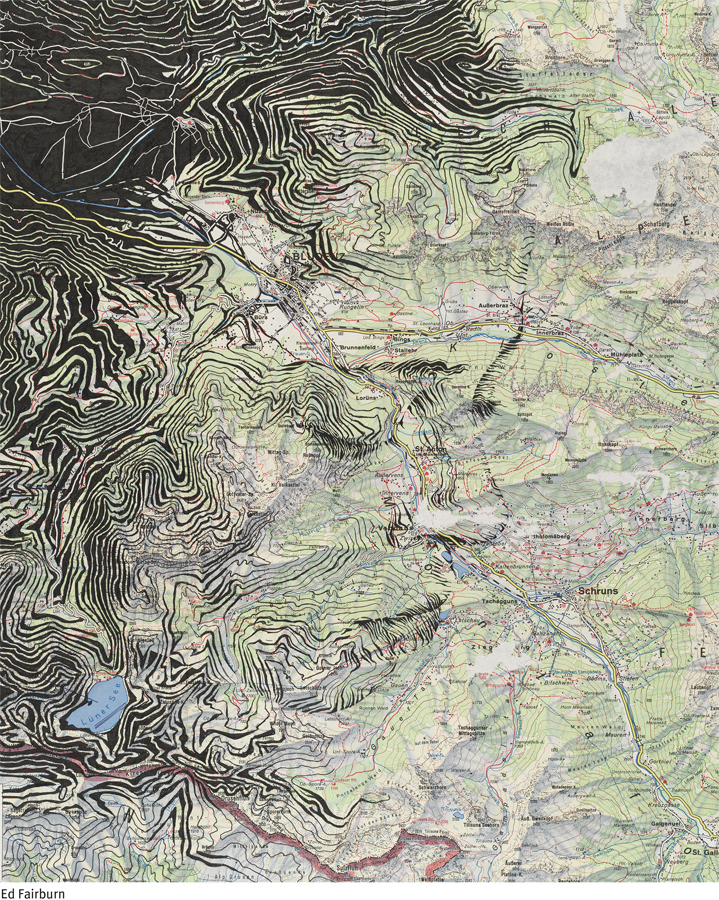Chapter Introduction
| CHAPTER |
| 1 |
Abnormal Psychology: Past and Present
1

TOPIC OVERVIEW
What Is Psychological Abnormality?
Deviance
Distress
Dysfunction
Danger
The Elusive Nature of Abnormality
What Is Treatment?
How Was Abnormality Viewed and Treated in the Past?
Ancient Views and Treatments
Greek and Roman Views and Treatments
Europe in the Middle Ages: Demonology Returns
The Renaissance and the Rise of Asylums
The Nineteenth Century: Reform and Moral Treatment
The Early Twentieth Century: The Somatogenic and Psychogenic Perspectives
Current Trends
How Are People with Severe Disturbances Cared For?
How Are People with Less Severe Disturbances Treated?
A Growing Emphasis on Preventing Disorders and Promoting Mental Health
Multicultural Psychology
The Increasing Influence of Insurance Coverage
What Are Today’s Leading Theories and Professions?
Technology and Mental Health
Putting It Together: A Work in Progress
Johanne cries herself to sleep every night. She is certain that the future holds nothing but misery. Indeed, this is the only thing she does feel certain about. “I’m going to suffer and suffer and suffer, and my daughters will suffer as well. We’re doomed. The world is ugly. I hate every moment of my life.” She has great trouble sleeping. She is afraid to close her eyes. When she does, the hopelessness of her life—
Some mornings Johanne even has trouble getting out of bed. The thought of facing another day overwhelms her. She wishes that she and her daughters were dead. “Get it over with. We’d all be better off.” She feels paralyzed by her depression and anxiety, overwhelmed by her sense of hopelessness, and filled with fears of becoming ill, too tired to move, too negative to try anymore. On such mornings, she huddles her daughters close to her and sits away the day in the cramped tent she shares with her daughters. She feels she has been deserted by the world and left to rot. She is both furious at life and afraid of it at the same time.
During the past year Alberto has been hearing mysterious voices that tell him to quit his job, leave his family, and prepare for the coming invasion. These voices have brought tremendous confusion and emotional turmoil to Alberto’s life. He believes that they come from beings in distant parts of the universe who are somehow wired to him. Although it gives him a sense of purpose and specialness to be the chosen target of their communications, the voices also make him tense and anxious. He does all he can to warn others of the coming apocalypse. In accordance with instructions from the voices, he identifies online articles that seem to be filled with foreboding signs, and he posts comments that plead with other readers to recognize the articles’ underlying messages. Similarly, he posts long, rambling YouTube videos that describe the invasion to come. The online comments and feedback that he receives typically ridicule and mock him. If he rejects the voices’ instructions and stops his online commentary and videos, then the voices insult and threaten him and turn his days into a waking nightmare.
Alberto has put himself on a sparse diet as protection against the possibility that his enemies may be contaminating his food. He has found a quiet apartment far from his old haunts, where he has laid in a good stock of arms and ammunition. After witnessing the abrupt and troubling changes in his behavior and watching his ranting and rambling videos, his family and friends have tried to reach out to Alberto, to understand his problems, and to dissuade him from the disturbing course he is taking. Every day, however, he retreats further into his world of mysterious voices and imagined dangers.
Most of us would probably consider Johanne’s and Alberto’s emotions, thoughts, and behaviors psychologically abnormal. They are the result of a state sometimes called psychopathology, maladjustment, emotional disturbance, or mental illness (see PsychWatch below). These terms have been applied to the many problems that seem closely tied to the human brain or mind. Psychological abnormality affects the famous and the unknown, the rich and the poor. Celebrities, writers, politicians, and other public figures of the present and the past have struggled with it. Psychological problems can bring great suffering, but they can also be the source of inspiration and energy.
2
PsychWatch
Verbal Debuts
We use words like “abnormal” and “mental disorder” so often that it is easy to forget that there was a time not that long ago when these terms did not exist. When did these and similar words (including slang terms) make their debut in print as expressions of psychological dysfunctioning? The Oxford English Dictionary offers the following dates.

Why do actors who portray characters with psychological disorders tend to receive more awards for their performances?
Because they are so common and so personal, these problems capture the interest of us all. Hundreds of novels, plays, films, and television programs have explored what many people see as the dark side of human nature, and self-
The field devoted to the scientific study of the problems we find so fascinating is usually called abnormal psychology. As in any science, workers in this field, called clinical scientists, gather information systematically so that they can describe, predict, and explain the phenomena they study. The knowledge that they acquire is then used by clinical practitioners, whose role is to detect, assess, and treat abnormal patterns of functioning.
 abnormal psychology The scientific study of abnormal behavior undertaken to describe, predict, explain, and change abnormal patterns of functioning.
abnormal psychology The scientific study of abnormal behavior undertaken to describe, predict, explain, and change abnormal patterns of functioning.